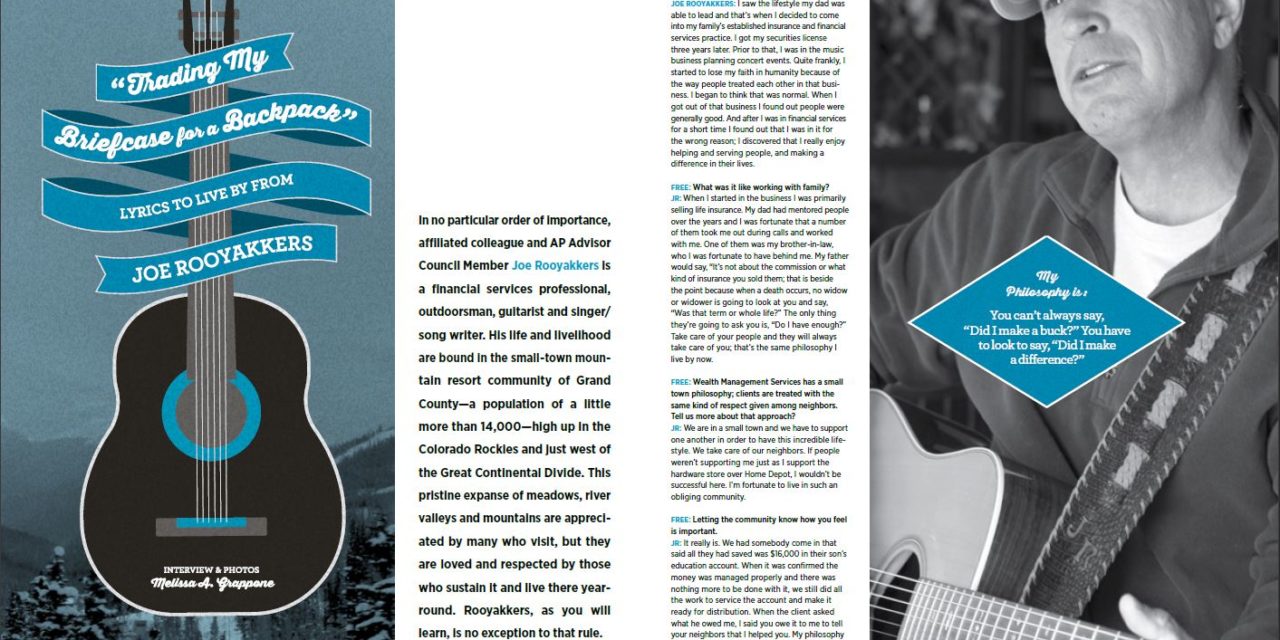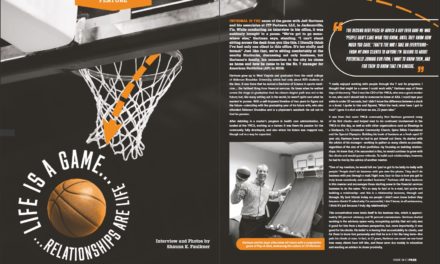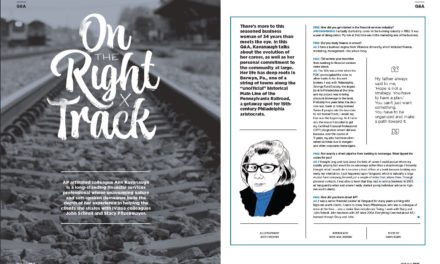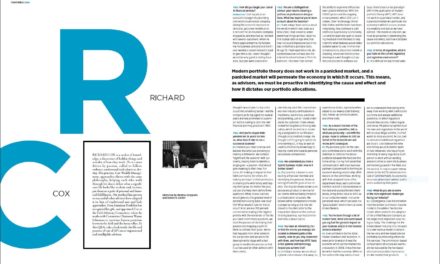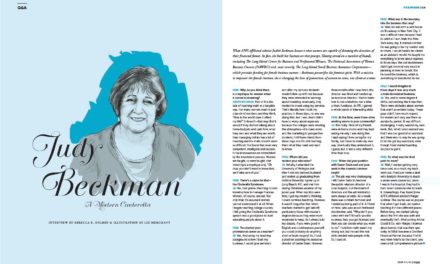
FREE 9.1 Q&A – Joe Rooyakkers
In no particular order of importance, affiliated colleague and AP Advisor Council Member Joe Rooyakkers is a financial services professional, outdoorsman, guitarist and singer/ song writer. His life and livelihood are bound in the small-town mountain resort community of Grand County—a population of a little more than 14,000—high up in the Colorado Rockies and just west of the Great Continental Divide. This pristine expanse of meadows, river valleys and mountains are appreciated by many who visit, but they are loved and respected by those who sustain it and live there year-round. Rooyakkers, as you will learn, is no exception to that rule.
To view the full article please register below:
FREE 9.1 Q&A – Joe Rooyakkers
“Trading my briefcase for a backpack” – lyrics to live by from Joe Rooyakkers
In no particular order of importance, affiliated colleague and AP Advisor Council Member Joe Rooyakkers is a financial services professional, outdoorsman, guitarist and singer/ song writer. His life and livelihood are bound in the small-town mountain resort community of Grand County—a population of a little more than 14,000—high up in the Colorado Rockies and just west of the Great Continental Divide. This pristine expanse of meadows, river valleys and mountains are appreciated by many who visit, but they are loved and respected by those who sustain it and live there year-round. Rooyakkers, as you will learn, is no exception to that rule.
FREE: You’ve been in financial services since 1993. What life events and/or aspirations prior to that brought you into this profession? JOE ROOYAKKERS: I saw the lifestyle my dad was able to lead and that’s when I decided to come into my family’s established insurance and financial services practice. I got my securities license three years later. Prior to that, I was in the music business planning concert events. Quite frankly, I started to lose my faith in humanity because of the way people treated each other in that business. I began to think that was normal. When I got out of that business I found out people were generally good. And after I was in financial services for a short time I found out that I was in it for the wrong reason; I discovered that I really enjoy helping and serving people, and making a difference in their lives.
FREE: What was it like working with family?
JR: When I started in the business I was primarily selling life insurance. My dad had mentored people over the years and I was fortunate that a number of them took me out during calls and worked with me. One of them was my brother-in-law, who I was fortunate to have behind me. My father would say, “It’s not about the commission or what kind of insurance you sold them; that is beside the point because when a death occurs, no widow or widower is going to look at you and say, “Was that term or whole life?” The only thing they’re going to ask you is, “Do I have enough?” Take care of your people and they will always take care of you; that’s the same philosophy I live by now.
FREE: Wealth Management Services has a small town philosophy; clients are treated with the same kind of respect given among neighbors. Tell us more about that approach?
JR: We are in a small town and we have to support one another in order to have this incredible lifestyle. We take care of our neighbors. If people weren’t supporting me just as I support the hardware store over Home Depot, I wouldn’t be successful here. I’m fortunate to live in such an obliging community.
FREE: Letting the community know how you feel is important.
JR: It really is. We had somebody come in that said all they had saved was $16,000 in their son’s education account. When it was confirmed the money was managed properly and there was nothing more to be done with it, we still did all the work to service the account and make it ready for distribution. When the client asked what he owed me, I said you owe it to me to tell your neighbors that I helped you. My philosophy is you can’t always say, “Did I make a buck?” You have to look to say, “Did I make a difference?”
FREE: What are both the challenges and opportunities of being a business owner nestled in the Rocky Mountains?
JR: The biggest challenge is I don’t have a bunch of peers around me. I’m pretty much solo—me and my assistant Ryan, that is. It’s challenging not to have peer groups around you to bounce ideas off of. You can’t help but wonder, “Am I putting my pants on like everybody else?” The other challenge is that people have limited resources so you can’t kick anybody out. I can’t be selective like some investment advisors in the metro area, who won’t accept clients with less than $250,000 in assets. It’s the nature of living in a small town.
FREE: How has your practice evolved in the last 25 years since you’ve been a financial advisor? And what have you done to get your clients to adjust to changes in the industry?
JR: It’s like night and day. When I started in the business everybody sold commission-based products. You chose your favorite fund families, worked with those product companies and occasionally sold an annuity. You lived paycheck to paycheck. In today’s world it’s much different. The level of service expected 25 years ago was probably a call once a year. Today, my clients’ expectations are to hear from me at least a couple of times a year. I take pride in the fact that we try to contact them four times a year. For me, the biggest difference today is it requires more studying than ever before on market conditions, being more active with your clients and more active in how their money is managed, whether you choose to manage it yourself or you have a third-party money manager to do it.
FREE: So, actively managing isn’t just about managing the assets; it’s in whatever way an investment advisor chooses to do that?
JR: Currently, I choose to actively manage the assets but, first and foremost, I have to actively know what’s going on in my clients’ lives. If you see them two, three or four times a year you’ll know that their kids are studying for college or they got their first job or, heaven forbid, there’s a medical concern like one of my clients right now, who has a kid with a very serious illness for the last four months and has been in the hospital for the last two. If I wasn’t visiting them every three months, would I have known to stop at the hospital last week to see him? If you want to get the same respect they give to their doctor, attorney or accountant, you really want to become a part of their life.
FREE: What kind of business are you drawing in your small-town community and how much more growth do you envision seeing?
JR: I have about 175 clients and we manage about 125 relationships, with combined assets of approximately $25 million. There’s probably another $5 million elsewhere in other financial products, such as annuities and life insurance. I would like to see us get to about 175 to 200 working relationships; I think I can handle that. Then, maybe, I’d look at bringing another body on.
FREE: That’s pretty impressive, Joe.
JR: For a small town it is. The reality is, in a market the size that I’m in, you have to be on top of your game to get everything you can out of that market. I’m in a different atmosphere. I doubt anybody in Boston or New York got a call from their client saying, “I’m taking tomorrow afternoon off and I know you’ve been waiting to get together with me. Is this something we can discuss on a chair lift?
FREE: It didn’t take you long before you became independent in 2005. How have you been able to grow your practice over the last 10 years?
JR: It’s word of mouth like most of us. I do a lot of advertising and for name recognition I sponsor every music event in town. Despite not being paid very well or having a successful career in it, music is still my first love. Therefore, through music it’s a good way to reach out to people and I can stay involved in it. How have I built the practice? It’s from my neighbor saying to his neighbor, “I work with Joe; I believe in him. His company is called Wealth Management Services—the name that you see on all the music and Chamber events.”
FREE: What competition, if any, are you facing in your small-town community?
JR: There is an Edward Jones office down the road. It’s true the people from the metro area who are retired here might be more familiar or comfortable going with a known entity. They’re not used to living in a small town where you’re supported. It’s the same as choosing McDonalds on the right side of the street over the local burger joint on the left; they just know what to expect. So, it’s a huge education curve when people move to a small town; their mindset is, ‘I’m going to call Edward Jones because I know that name.” But perhaps over time they’re talking to their neighbors who made them feel welcome here who are telling them they prefer to buy local. It’s a huge hurdle I have to work through.
FREE: Like CEO Lon T. Dolber, you are playing music in your community. Lon often jokes about having an identity crisis between being a bass player for the Filthy Crickets or the CEO of a financial services firm. Do you struggle with the same dilemma?
JR: I do. In fact, often I’ll be playing in the community and one of my clients will come up to me and say, “I was here for an hour before I realized that was you.” They just don’t expect to see me there; and, when I introduce myself during these events they’re telling their friends, “Oh my God, that’s my financial guy. I didn’t recognize him with the baseball hat and t-shirt playing guitar.”
FREE: You have been serving on the AP Advisor Council (formerly the Field Advisory Committee) for more than a year now. Tell us about that experience and, if you could, touch upon one collaborative effort that you believe has had a significant impact for the field since you’ve been a member?
JR: First of all, I volunteered; nobody came to me. The reason I did that is I felt there needed to be a voice out there for the average producer. My goal for the next three years while I’m still on the council is to be that voice for the financial professional who says, “I’m not a big producer, I feel like I’m not being heard and important enough.” The biggest difference that I think I’ve made so far concerns something a lot of producers don’t take time to think about because they are busy in their daily activities. It involves practice transition and getting in front of the principals to talk with AP colleagues they supervise about filling out the appropriate forms that specify what should happen to their practice in the event they become disabled or should die tomorrow. All they need to do is fill out three forms and sign in three places. These are provisions reps might not know are available to them. My next goal is to try and make reps more aware of their own insurance planning needs. Like myself, I haven’t bought disability insurance in over a decade. Do my APFS colleagues know we can get a 10 percent discount from MassMutual? I never knew that. I want to continue to bring such best practices to the forefront so even a small producer can take advantage of them.
FREE: Is there anything more that you hope your voice on the council will achieve?
JR: I would hope that my presence there would also help the firm attract more people west of the Mississippi—that we have a larger presence throughout the nation than just on the East Coast. There are lots of small towns in Wyoming that have money; there’s just nobody taking care of them. I have one of those small towns that I take a ride up to once a year. I have three clients up there and I always tell them don’t be afraid to refer me.
FREE: Can you give us an account of a typical day-in-the-life of Joe Rooyakkers?
JR: I’m an early riser; I usually get up at about 5:30 so that I can get to work on East Coast time. My day wraps up typically around 3:00 in the afternoon. Throughout the day I have appointments. I’ll have an agenda with things that need to be accomplished and then I might have two or three people who drop in just to say hi. We talk about what’s going on in their life; it’s not always about business. This afternoon, I might still be able to get some cross-country skiing in. Last year I skied over a hundred days—62 days at the ski area and another 40 cross-country skiing. I had ski boots on over a hundred days out of the year. Our kids go to school Monday through Thursday. Friday is the town’s ski day and kids with a Grand County school pass ski free. That’s a day that mom and dad can block off to go out there and ski with their kids, and I’m out there typically on Fridays skiing, as well.
FREE: Tell us about your relationship with your principal, Mike Diemer.
JR: I speak to him at least once a week. He visits me every September, too. He is over-the-top helpful and he really cares. Mike is at a point in his life where he can’t possibly be in it for the money anymore. He does it because he likes adding to other people’s success and witnessing it. I feel very fortunate to have him supporting me. The things he has done for me personally that have nothing to do with business can never be replaced.
FREE: Is it a true or false statement that you can take the boy out of Wisconsin but you can’t take Wisconsin out of the boy?
JR: It is true. I’m still a small town kid from Wisconsin who spent time with farmers and paper mill workers. At one point, I saw myself up in Summit County, Colo., living with the lifestyles of the rich and famous. Fact is I’d rather be with the farmer next door over the heart specialist who owns the big house with the copper roof. Here in Colorado, I relate very well to the person that’s a rancher or who works at the ski area. I’m used to working with blue collar and I didn’t realize that till I moved out here. It’s who I am.
FREE: Where do you see yourself personally and professionally in the next five to 10 years?
JR: I absolutely love what I do and it’s going to be really hard for me when and if I have to stop. At the same time, I don’t want to be that guy who’s 80 years old and still sitting at the annual meeting because that is my whole life. I hope to find a happy medium. My dream would be to bring other professionals in where maybe I could have an accountant or an attorney on site—something that isn’t being served very well in our county. I intend on growing this practice over the next 10 years. At the same time, I intend on getting a bigger camper.
FREE: Tell me about the furthest placed you’ve traveled for a music event.
JR: I went to Cuba for two weeks on a music and cultural exchange in May 2013. I did it with a group called International Travel Single that was open to anybody who wanted to go. We looked at a lot of art galleries and museums. I got to hear a lot of Cuban music and play in some of their bands. Even though I couldn’t play the flamenco style, I tried to keep up with them. It really was quite the experience. I came home on a Memorial Day weekend and when I pulled into Winter Park there were American flags hung all up and down the road. It was the only time in my life that I cried for a half hour. I was never so happy to see an American flag. Cubans are treated so poorly intheir country; such wonderful people, full of love, who have nothing to share because they don’t have anything physically. The only thing they have to share is love for one another.
FREE: Sounds like inspiration for a great song, Joe. Tell me some of your song titles.
JR: One is “Simple Wooden Cross.” I wrote it for my mom and dad. Another song title I have is “Following the Dead.” It’s about a friend of mine who graduated college and was kind of a lost soul and followed the Grateful Dead around for a while. Or, my friend and I were having lunch together talking about what we wanted to do in retirement, and I wrote a song called “Trading My Briefcase for a Backpack.”
FREE: For you, Joe, no doubt it will be a backpack that can stow a fully-loaded tablet, solar battery charger and mobile cell phone booster. Thanks for making the time for us.
JR: You bet. Thank you.






